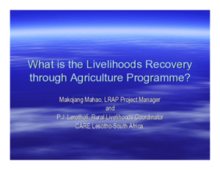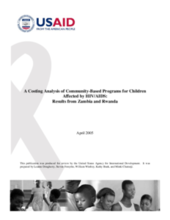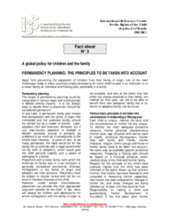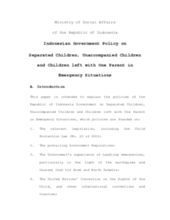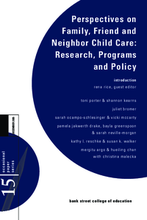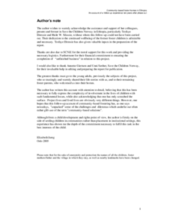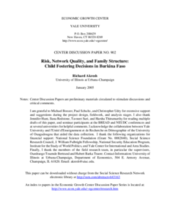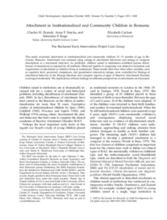Displaying 13951 - 13960 of 14428
A description of a multi-level intervention in rural Lestho aimed to improve the livelihood security of vulnerable households by improving home gardening, increasing awareness of HIV/AIDS, and influencing policy. By focusing on rural livelihoods and economic empowerment the program had some success in raising awareness and strengthening resilience to the HIV/AIDS epidemic.
A report which analyzes the costs associated with various types of interventions for orphans and vulnerable children, including institutional care, tracing and reintegration, and community-based care.
A brief fact sheet on global permanency planning, which highlights the importance of using an individualized and multidisciplinary approach to creating a long-term plan for every child.
Indonesian policy paper on the practice principles for separated and unaccompanied children in an emergency, including guidance on short and long-term care arrangements, tracing, and family reunification
Economist article which argues for changes in US federal welfare funding to maintain family unity and reduce the numbers of children entering into foster care.
A series of papers examining kinship care options and programs in the US which address low socio-economic status, culturally appropriate care, exemplary models of kinship care, and public policy.
A description of the programmatic steps taken in establishing a community-based foster home in Ethiopia and an evaluative follow-up on these children ten years later
Analyzes household decisions to send and receive children via fostering. Results show fostering used as a social protection mechanism to cope with income shock (sending) and address family labor shortages (receiving).
This study examined attachment in institutionalized and community children 12 – 31 months of age in Bucharest, Romania.
Helpful resource for defining key terms, issues, and practices in psychosocial support. Contains a short list of recommended tools for support and monitoring of psychosocial support interventions.

